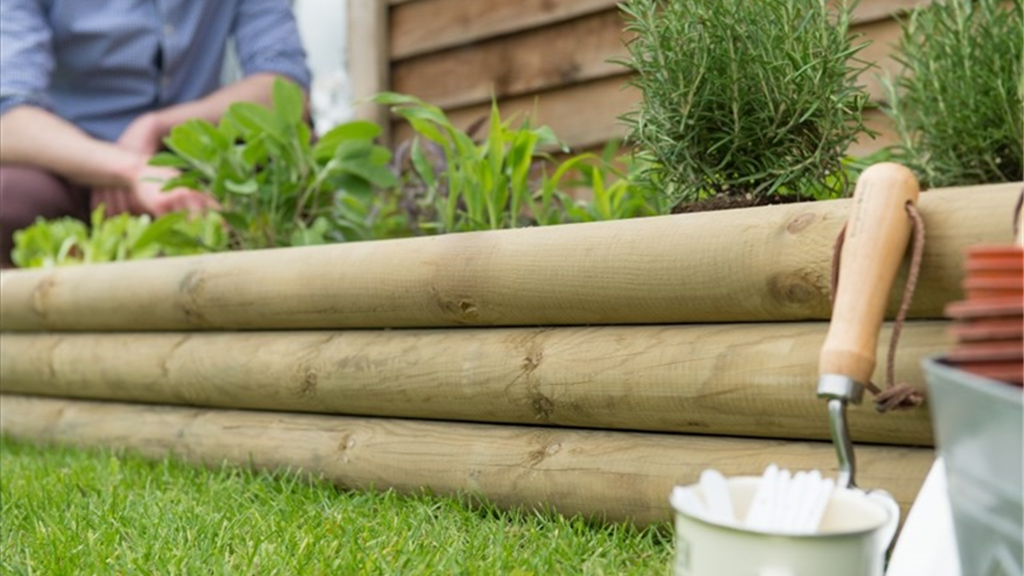
Life is hectic, and finding a place to get away from it all is at the top of the list for many people. You can find this sanctuary on an allotment. This week is #allotmentweek, and we’re looking at how this small patch of land can bring physical activity, mental relaxation, and a sense of community. If you're considering growing your own vegetables, an allotment might be the perfect solution. But why do you need one and how do you get started?
Benefits of Having an Allotment
1. Fresh, Organic Produce
One of the most compelling reasons to have an allotment is the access to fresh, organic produce. Growing your own vegetables means you can control what goes into the soil and onto your plants, avoiding harmful pesticides and chemicals. The taste of freshly picked veg is incomparable to the ones you get in the shops, which often lose nutrients and flavour during transportation and storage.
2. Physical Health
Gardening is a fantastic form of exercise. The physical tasks involved in maintaining an allotment—digging, planting, weeding, and harvesting—provide a full-body workout. Regular physical activity can help reduce the risk of chronic diseases, improve your heart health, and enhance flexibility and strength. Like yoga, with added vitamins.
3. Mental Wellbeing
Spending time outdoors in nature has been shown to reduce stress, anxiety, and depression. The rhythmic activities of gardening can be meditative, helping to clear the mind and foster a sense of accomplishment. On top of that, the satisfaction of nurturing plants from seedlings to harvest can boost self-esteem and mood.
4. Community and Social Interaction
Life can be lonely too, and allotments often foster a sense of community. Sharing a space with other gardeners provides opportunities to meet new people, share tips, and exchange produce.
5. Environmental Impact
Growing your own vegetables reduces the need for commercial farming, which often relies on heavy machinery and long-distance transportation, contributing to carbon emissions. Allotments promote sustainable practices such as composting and rainwater harvesting, helping to reduce your carbon footprint. And if you’re growing in your own garden, your food miles will be zero.
Getting Started with Growing Vegetables on an Allotment
1. Securing an Allotment
The first step is to find an available allotment. In the UK, allotments are typically managed by local councils, so start by contacting your local authority or visiting their website to find out about availability and waiting lists. Community gardens or private allotment sites are also options worth exploring.
2. Planning Your Plot
Once you have secured your allotment, spend some time planning your plot. Consider the following:
3. Choosing What to Grow
Start with vegetables that are easy to grow and suit your local climate. Popular choices for beginners include:
4. Preparing the Soil
Good soil preparation is crucial for a successful harvest. Start by clearing any weeds and debris from your plot. Dig over the soil to a depth of at least 30cm (12 inches) to loosen it, and mix in plenty of organic matter, such as compost or well-rotted manure, to improve soil structure and fertility.
5. Planting and Sowing
Follow the planting instructions for each vegetable. Some vegetables can be sown directly into the soil, while others may need to be started indoors or in a greenhouse before being transplanted. Ensure proper spacing between plants to allow for growth and air circulation.
Our range of potting benches, cold frames and greenhouses are your friend.
6. Regular Maintenance
Maintaining your allotment involves regular tasks such as:
7. Harvesting and Enjoying Your Produce
Harvest vegetables when they are ripe for the best flavour and nutrition. Regular harvesting can also encourage more production. Then back in your kitchen, enjoy the fruits of your labour in delicious, home-cooked meals. Share or swap any surplus with friends, family, or local food banks.
So what are you waiting for?
Having an allotment offers a bumper crop of benefits, from enjoying fresh, organic produce to improving physical and mental health. The sense of community makes the experience even better. If we’ve inspired you to start, then be sure to keep us up to date with your progress. Tag us on Facebook or Instagram. Whether you're a seasoned gardener or a complete beginner, we hope you enjoy a space to reconnect with nature, cultivate new skills, and relish the simple joys of gardening.